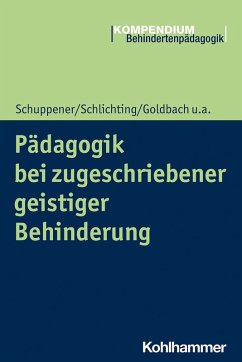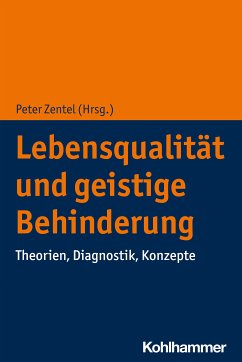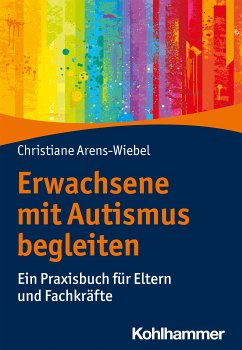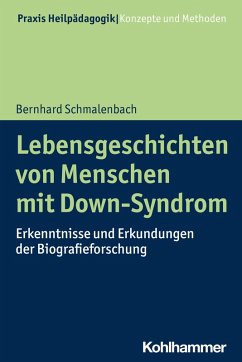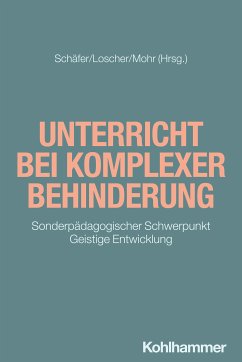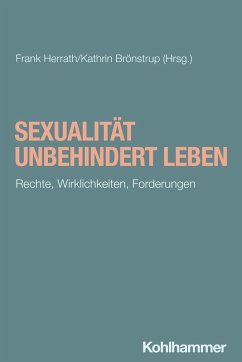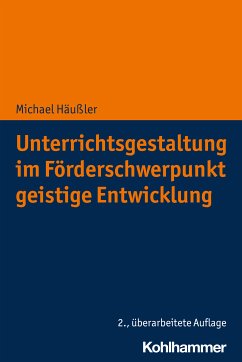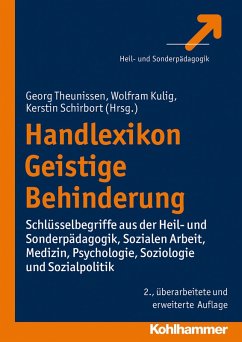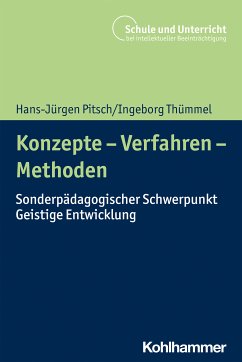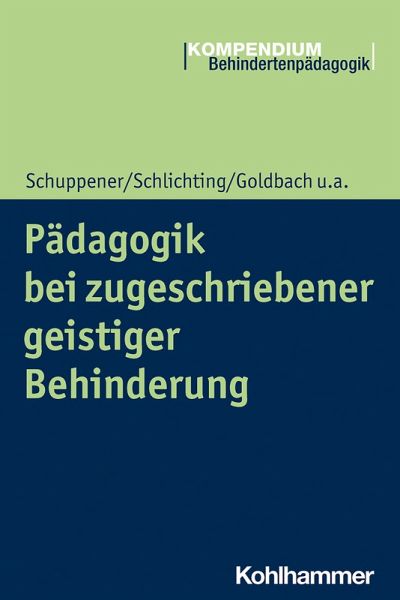
Pädagogik bei zugeschriebener geistiger Behinderung (eBook, PDF)
Versandkostenfrei!
Sofort per Download lieferbar
Statt: 39,00 €**
34,99 €
inkl. MwSt. und vom Verlag festgesetzt.
**Preis der gedruckten Ausgabe (Broschiertes Buch)
Alle Infos zum eBook verschenkenWeitere Ausgaben:

PAYBACK Punkte
0 °P sammeln!
An educational theory intended to address the group of people who are thought to suffer from intellectual disability has a responsibility to self-critically examine the history of its own development, its current self-image and the question of its legitimacy and positioning for the future. Against the background of increasingly obvious assaults on basic humane and democratic values, this book reflects on the positive achievements and also on the power of exclusion of an educational theory addressing suspected intellectual disability. The book is dedicated to the importance of human rights&base...
An educational theory intended to address the group of people who are thought to suffer from intellectual disability has a responsibility to self-critically examine the history of its own development, its current self-image and the question of its legitimacy and positioning for the future. Against the background of increasingly obvious assaults on basic humane and democratic values, this book reflects on the positive achievements and also on the power of exclusion of an educational theory addressing suspected intellectual disability. The book is dedicated to the importance of human rights&based action in selected fields of educational work and different areas of life. It takes a discrimination-sensitive, socially critical look at normative stances in the profession and discipline of educational theory that still attaches fixed diagnoses to individuals and leads to exclusion. The relevance of the resulting ?educational theory of segregation= is examined in theory, research and practice.
Dieser Download kann aus rechtlichen Gründen nur mit Rechnungsadresse in A, B, BG, CY, CZ, D, DK, EW, E, FIN, F, GR, H, IRL, I, LT, L, LR, M, NL, PL, P, R, S, SLO, SK ausgeliefert werden.




